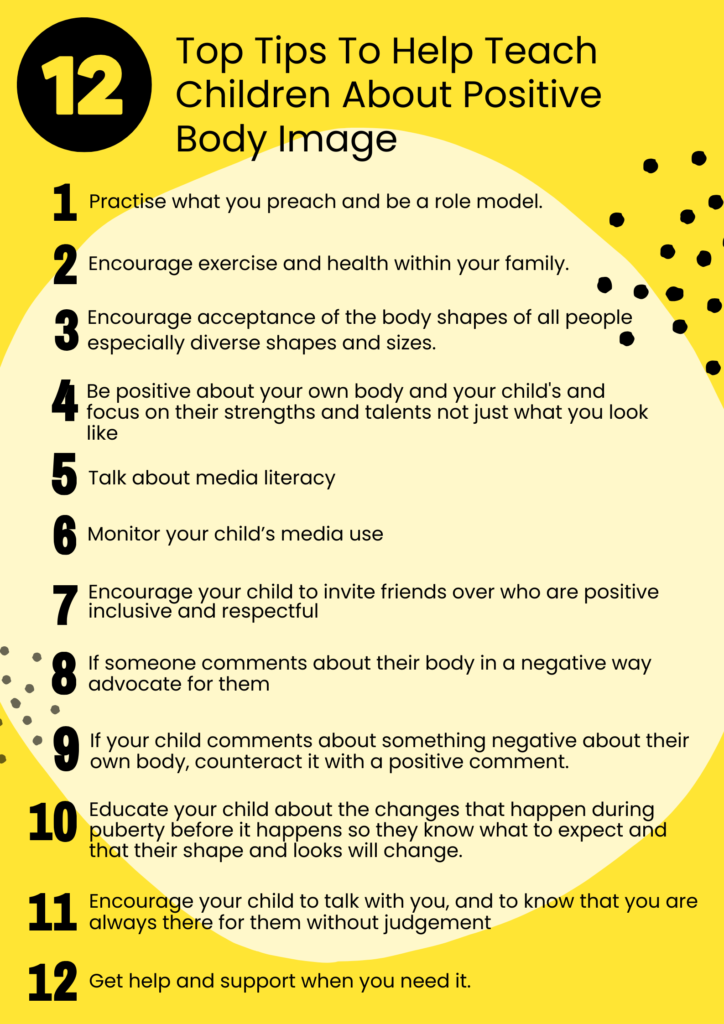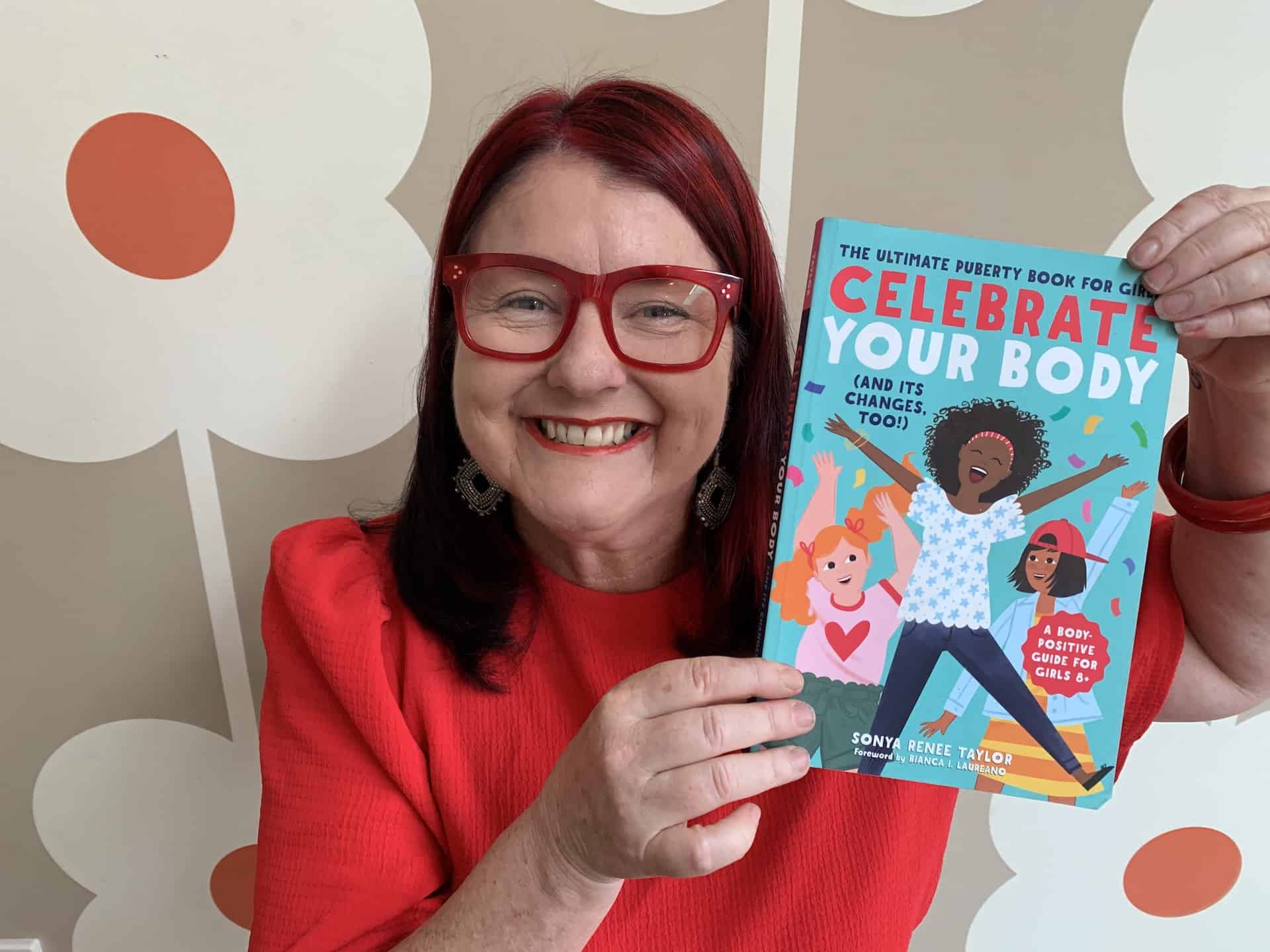What Is Body Image?
The definition of ‘body image’ is the way you think and feel about your body and what it looks like.
I have grown to accept my body as I age, but when I was going through puberty, I was plagued with body image insecurities. Were you? How did this affect you? Our children are growing up in a different world especially because of the media and the internet, and as a result, it can be much harder for them to accept their bodies.
I have been thinking lately about what could have helped me. So here are some do’s and don’ts that if you put into practise can make a huge difference to your child having a positive or negative body image.
12 Do's To Help Teach Children About Positive Body Image
Practise what you preach and be a role model.
Encourage exercise and health within your family.
Encourage acceptance of the body shapes of all people – especially your own body.
Be positive about your own body and focus on your strengths too.
Talk about media that shows different body shapes and sizes (there are more now).
Monitor your child’s media if you need to.
Encourage your kids to invite friends over who are positive and also encourage them to hang around people that make them feel good about themselves.
Say nice things about your child’s body and more importantly their strengths as a person.
If your child comments about something negative about their own body, counteract it with a positive comment.
Educate your child about the changes that happen during puberty so they can expect that their shape and looks will change. Emphasise that puberty is a process over time, during which one’s body continues to change quickly.
Encourage your child to talk with you, and to know that you are always there for them without judgement.
Get help if you need it. There are so many great support networks if you or your child needs it!

6 Don'ts When Raising a Child To Have a Positive Body Image
Don’t continually talk about your own body or diet that you are on, especially in a negative way.
Don’t say good bodies, bad bodies or good food, bad food. There are no bad bodies and food is not bad or good, it’s a healthy or an unhealthy choice.
Don’t comment about your child’s shape or size or their growing and changing body in a negative way, especially as they go through puberty.
Don’t compare your child to other children’s bodies.
Don’t be too restrictive with food, unless of course they have special dietary requirements.
Don’t be obsessive about the need to exercise.
Help Your Children Feel Positive About Their Body
We can’t always feel positive about our bodies but we can still feel confident. If our body image is the way that we think and feel about our bodies then we can help our children to think and feel positive about their body image across all stages of their growth and development.
More Resources About Puberty
Click here for a list of books about bodies and body image. I have read and reviewed all of the books you find on this page and I am still in the process of adding more books to the list.




